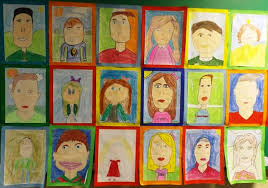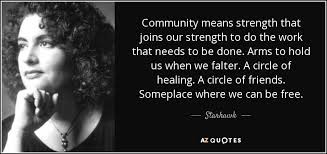How hard can it be to sit still for a morning to have your portrait painted by a group of budding amateur artists? Well actually not too hard but occupying the mind while remaining still can be a bit tricky. I began to think about the resultant pictures and how these artists would interpret me,not just the physical ,the outward presence but what would they see of me, of my soul, of who I was.
Perhaps nothing past the hair colour, the wrinkles, laughter lines and grey hairs but I hoped that they would see something else, something that maybe each individual would recognise and connect with, something that only they would see or better still something universal that anyone would see. They all knew very little about me other than a few public facts. I own a dog, who my partner is, a few friends maybe in common, that I am retired, and a few of the class knew that I was once the manager of the children’s home in the village only a few yards from where the class is held. And a guess at my age I suppose. Of course they can make up a back story from these few facts but it would be a bit thin and say nothing of the real me.
But what would I want them to see or not see . I would want them to see more than the good bits,more than the ready smile and kind word generally offered. I want them to see that those open parts of me are borne from many hard experiences not from an easy path through life because that is where I believe compassion and kindness spring from. If we are genuinely to understand the desires, wishes and needs of the vulnerable and less fortunate in life then we need to have experienced some hardship ourselves. This does not mean that only those who have experienced, for example, homelessness can aid the homeless or that you must have had your own children to be able to work alongside children and families. I have often been told that I don’t understand because I am not a parent . I recalled a young person once asking me if I was running a children’s home because I couldn’t have my own children when asked where she had got that idea from it transpired that this was a commonly held view among the staff. A back story born out of very few facts and a bit of imagination which fitted their own life scripts. They were mostly married women with children.
It is not the exact or similar event that must be experienced but the transferable feelings and emotions that are important to understanding. If I have felt loss, abandonment, hatred, overwhelming sadness, hopelessness, guilt, pain, anger, misery, then I can feel compassion for those with similar emotions. I can also believe that they are survivable even in the most dark and difficult circumstances. For those of us who can say that we have had good childhood who have experienced warmth, affection, security, friendship and unconditional love and always known our connection to the world we can just begin to understand all of these blessings in their absence if we can stand the pain for a moment. Because probably all of the people I have met during my career have and continue to experience the exact reverse. We can be brave enough to use our imagination and intellect to reverse our own story in order to share their pain. Because it is not our story we can return safely to our reality with renewed understanding. I have always tried to get in touch with the pain of those I worked with and I hope they knew that in some way. I know I can return safely to myself and that is probably why I have survived better than many of my peers and colleagues.

But can all this be seen in the lines on my face or in my demeanour while I sit for my portrait painters? We are none of us simple, straight line life stories. We are hugely and endlessly complex. My mind racing through these thoughts has kept my body still but now I am allowed a break and to see the end products. The colours in my hair proved a challenge apparently and I see nothing of my thoughts while sitting in their work except for one that showed a distinct stoicism in my posture and another that made me look rather far away in my thoughts which was indeed exactly where I was.
Sometimes sitting still and letting ones thoughts meander is a really good thing to do. I enjoyed my morning sitting still and I hope the artists did too and invite me back again.













